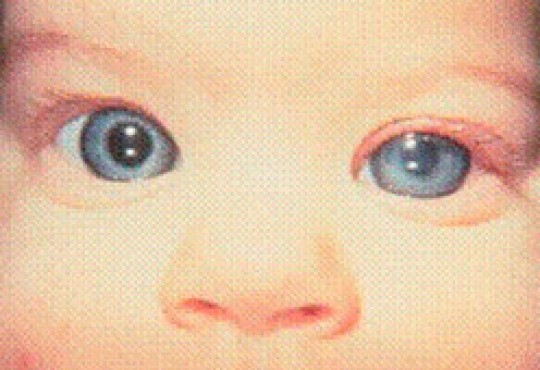afections
Congenital glaucoma
 DEFINItion
DEFINItion
Congenital glaucoma is a disease that causes increased intraocular pressure, damaging the optic nerve, which transmits visual information to the brain. It usually occurs in the first months of a child's life or in early childhood.
Late infantile glaucoma occurs in children over 3 years of age through adolescence.
 symptoms
symptoms
The usual symptoms are buphthalmos or enlargement of the eyeball, bulging eyes, epiphora or excessive tearing, photophobia or light discomfort, and corneal opacity, which makes the iris or colored area of the eye see opaque. Along with this, there is an increase in the length of the eye and myopia.
 causes
causes
It is a genetic disease. There is an anterior segment malformation during the embyogenesis. Another possible cause is the persistence of an invisible membrane inside the eye.
Sometimes, glaucoma can be secondary to other eye conditions.
 treatment
treatment

Surgical treatment consists in performing a trabeculotomy or opening in the inner part of the eye, thus creating a fistula through which fluid can circulate. Success rate is about an 85%. Postoperative examinations are essential throughout life.
Any increase of myopia, in the length of the eye or in the cornea diameter means ocular pressure is not stabilized.
Treatment should be considered immediately, because high pressure can damage the optic nerve, affecting vision.

